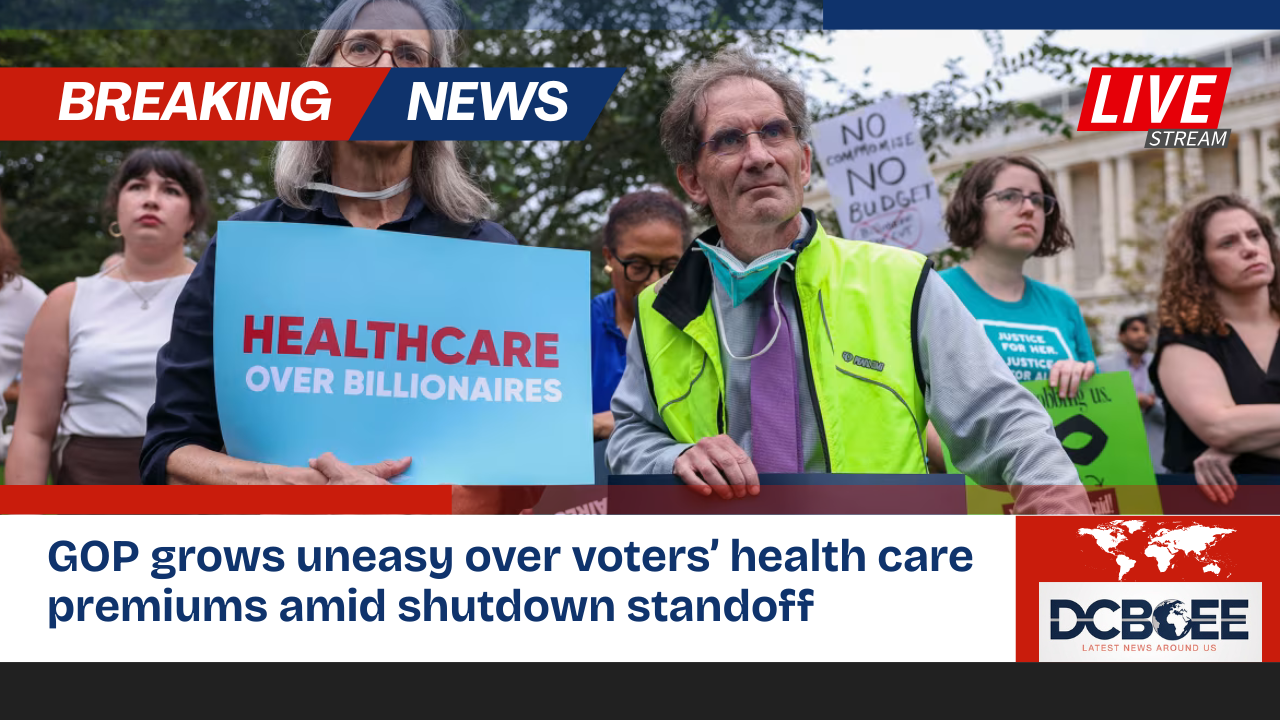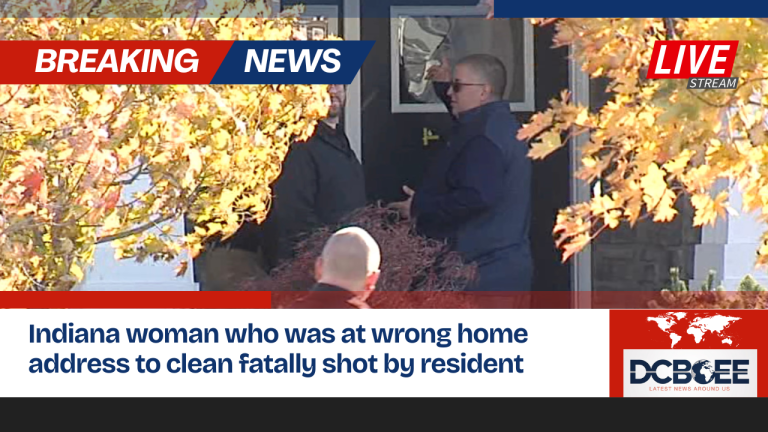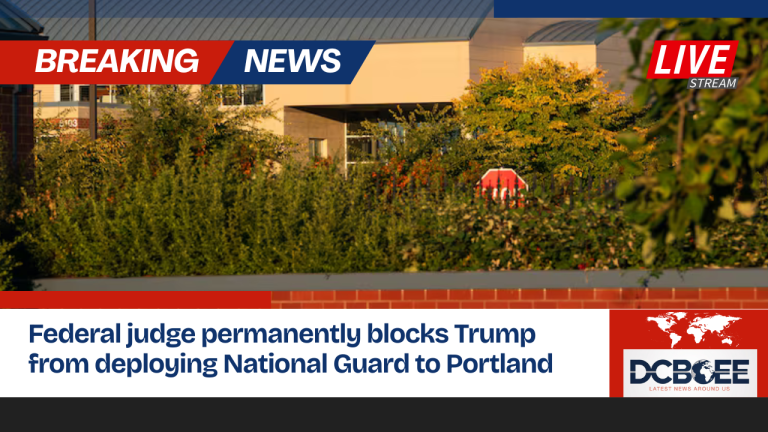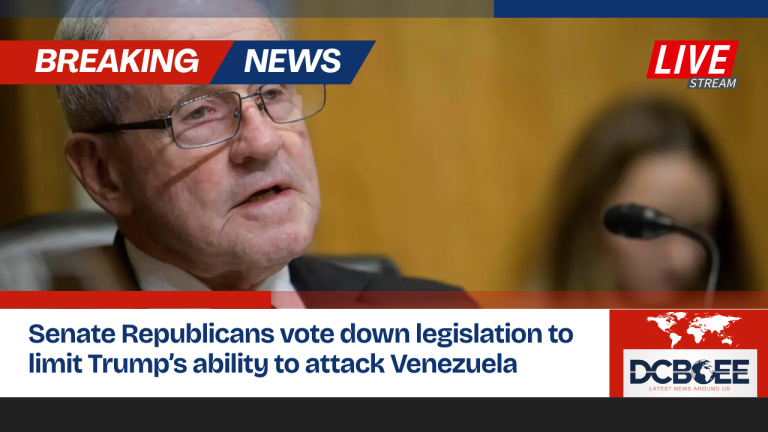
GOP grows uneasy over voters’ health care premiums amid shutdown standoff
Republican members of Congress are getting more and more worried that their party doesn’t have a strategy to deal with a key health care deadline this autumn that will raise expenses for millions of Americans. This is the main issue that is making the government shutdown dilemma worse.
Some of those Republicans are giving their own leaders a strong warning: If they don’t do anything, they could lose full control of Congress in the midterm elections next November. They are calling for a plan to quickly move forward once the government reopens that would deal with the expiring enhanced Obamacare tax credits.
Rep. David Valadao, a vulnerable GOP representative from California, warned CNN that the political implications of the health care issue could be bad for them if expenses go up. “I know some leaders don’t like hearing it, but there’s no denying it.” He remarked, “We shouldn’t just sit back and watch rates go up and point fingers.”
Valadao is one of many House and Senate members who are writing down their own ideas for how to deal with the ending enhanced Affordable Care Act subsidies, which help millions of Americans pay for insurance. Many of those Republicans, most of whom are from battleground seats, are also directly telling their leaders and the White House to do something to make sure the tax credits stay coming at the end of the year.
Democrats have made extending the subsidies a key part of their demands in the shutdown struggle. Senate Republicans have tried a dozen times to pass a House bill to reopen the government until November 21, when there is a deal on health care. Most of these Republicans who are at risk agree with the GOP leadership that there should be no talks until after the Democrats vote to reopen the government.
Some people, on the other hand, want things to change. “I think it’s time for Republicans and Democrats to sit down together and talk about how to break this deadlock.” Lisa Murkowski, a moderate Republican from Alaska, said
Murkowski added, “That would certainly help,” when asked if President Donald Trump should step in directly to end the stalemate, which he has so far refused to do.
“I think everyone knows that the president has a big part to play in a shutdown,” she remarked.
Party leaders are fully aware of the pressure. This week, Senate Majority Leader John Thune met with a small group of senators inside the US Capitol to talk about possible ways to fix the problem. One person noted that the session was like shaking hands so that Republicans are ready to talk about the health care concerns that Senate Minority Leader Chuck Schumer and his party want when the Democrats finish the shutdown.
“I ponder about health care before I go to bed. Sen. Bill Cassidy, a Republican from Louisiana who is in charge of the Senate Health, Education, Labor, and Pensions Committee, said as he left the conference, “Of course, I’m always thinking about what we can do to find a solution.” “I say that, but it’s more pointed forward because we need Schumer to open the government.”
Trump and the GOP still can’t agree on how to address the matter, even though a very important deadline is coming up on November 1, when open enrollment starts. Republicans are stuck because GOP leaders have stopped any talk about how to deal with the subsidies during the budget fight. This is because Democrats have made those subsidies a big part of their demands. But the standoff has lasted longer than expected, which has kept Republicans from coming up with a solution to one of the most difficult problems in Washington right now. This is especially true since extending the subsidies even for a short time might cost tens of billions of dollars.
It’s not certain how long that position will last. Several well-known Republicans who are loyal to Trump, such Georgia Rep. Marjorie Taylor Greene and Missouri Sen. Josh Hawley, have been speaking out more and more about how not doing anything will hurt millions of Trump voters.
“If we don’t do anything, their premiums will almost double.” Right now, they’re too high. Hawley added, “We’re talking about people who work.” “So we have to do something, that’s all. “This is way too expensive.”
Some members, like New Jersey GOP Rep. Jeff Van Drew, have talked to Trump directly and told him that the party’s own working-class supporters need that money to pay for their health insurance. Van Drew told CNN that Trump made it clear during a recent phone call that “he doesn’t want to hurt people.” “His worry is, is there a better way we can do this?” Van Drew said.
The New Jersey Republican told Trump there was, but he was worried it would take too long to solve. He told the president, “I don’t think we’re going to get it done in a matter of weeks.”
Van Drew said that he agreed with Greene’s recent criticism of their own party for not having a plan on an issue that affects working-class voters. The New Jersey Republican said, “It’s morally wrong not to do it and politically stupid.” But the future of that strategy is quite unclear among the GOP, especially in the House. Several people who are engaged in the talks say that House Republican leaders are privately doubtful that their party, which is very split, would be able to agree on an extension of Obamacare this year. They also think that any changes would be hard to make in just a few weeks.
Some officials in the GOP don’t think that the rising premiums, which KFF says will more than double nationally, will be the main issue in the elections next November. And they realize that if they vote on the Affordable Care Act, they could get a lot of pushback from the right. “I think it’s an issue where everybody realizes we have to do something,” one congressional GOP campaign operative said, while stressing that Republicans will likely require big modifications to garner support from across the conference. “It’s a trigger for the base, hearing ‘Obamacare.’”
Some House conservatives, meantime, are advocating for major overhauls of the program that would be unlikely to gain Democratic backing.
Rep. Tim Burchett from Tennessee said, “The whole thing is a nightmare, and I think we better look at redoing this thing.” He does not favor just continuing the additional subsidies. “I want to make sure that whatever we do makes sense from a financial point of view.”
Senator Tommy Tuberville, a Republican from Alabama, said that if Congress just extends the subsidies, Americans will be “screaming bloody murder” at the damage to the US economy. He admitted that ending the extra ACA tax credits would raise premiums for his constituents, but he said that former President Obama’s health care law has “ruined our health care system” and that trying to help those in need has “really put us in harm’s way.”
Still, some Republicans are open to the idea of an extension. For example, Sen. David McCormick, a first-term Republican from Pennsylvania, said he would support placing stricter income limitations on the families who may get the subsidies.
McCormick remarked in an interview, “But I’m definitely worried about working families and what the premium costs will mean for them.”
Even the Republicans who do want a short-term extension have said they won’t back it forever. They want big changes to the Obamacare marketplace because they say it is being kept alive by billions of dollars in taxpayer subsidies. “We’ve got to address this in the immediate term,” Rep. Mike Lawler of New York told CNN, who backs a short-term extension because he wants to “make sure people don’t see a sticker shock.”
“We don’t want people’s health care premiums to go up, and most Republicans want to lower the cost of health care.” No one is arguing with that. He remarked, “I think the question you know is how do you go about that?” He stressed that he wants to see big changes to those subsidies in the next years.
Source: https://edition.cnn.com/2025/10/26/politics/health-care-premiums-obamacare-republicans-shutdown
See Also: Bessent calls anti-tariff Reagan ad ‘psy-ops’ and says the U.S. rescue of Argentina still counts as






![My biggest AirPods Pro 3 problem has improved, how about you? [Poll]](https://dcboee.us/wp-content/uploads/2025/11/President-Faces-Impeachment-Nation-Braces-for-Political-Turmoil-67-768x432.png)
